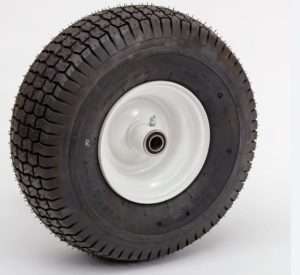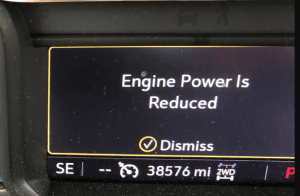Maximizing Your Dodge Charger’s Performance with Stock Tires
The Dodge Charger is known for its powerful engines and sporty handling. The current model, which has been in production since 2011, is available in several trim levels, each with different engine options. The base model comes with a 3.6-liter V6 engine, while higher trim levels offer the option of a 5.7-liter or 6.2-liter V8 engine.
The stock tires on the Dodge Charger are typically Goodyear or Pirelli brand, depending on the trim level and model year. These tires are designed to provide good traction and handling, while also offering a comfortable ride and a long tread life.
They are typically all-season tires, which means they can be used in a variety of weather conditions. However, the actual tire size and specification may vary based on the trim level and package of the car.
Tires specifications
Size and dimensions:
The size of the stock tires on the Dodge Charger varies depending on the trim level and model year. Common sizes include 245/45R20, 275/40R20, and 285/35R22. The first three digits (245, 275, 285) refer to the width of the tire in millimeters, the next two digits (45, 40, 35) refer to the aspect ratio of the sidewall height to the width, and the last two digits (R20, R20, R22) refer to the diameter of the wheel that the tire is meant to fit on.
Speed rating:
The speed rating of a tire is an indication of its ability to handle high speeds. Stock tires on the Dodge Charger typically have a speed rating of V, which means they can safely handle speeds of up to 149 mph.
Load capacity:
The load capacity of a tire refers to the maximum weight it can safely carry. Stock tires on the Dodge Charger typically have a load capacity of around 1,764 pounds, but this can vary depending on the size and model of the tire.
Seasonal suitability:
As mentioned, the stock tires on the Dodge Charger are typically all-season tires, which means they can be used in a variety of weather conditions, including rain, snow, and sun. However, it is important to note that all-season tires may not perform as well as dedicated winter tires in extremely cold or snowy conditions.
Warranty information:
The warranty information for the stock tires on the Dodge Charger will depend on the manufacturer. Typically, they will come with a manufacturer’s warranty that covers defects in workmanship and materials. It is important to check the warranty information for the specific tires on your Dodge Charger.
Performance characteristics
Dry and wet traction:
The stock tires on the Dodge Charger are designed to provide good traction in both dry and wet conditions. They have a tread pattern that is optimized for evacuating water and reducing the risk of hydroplaning.
Handling:
The stock tires on the Dodge Charger are designed to provide good handling and stability. They have a tread pattern and compound that is optimized for grip and responsiveness, which can help enhance the sporty handling of the vehicle.
Noise level:
The noise level of the stock tires on the Dodge Charger is generally considered to be low. They are designed with a tread pattern and compound that helps to minimize road noise and provide a comfortable ride.
Ride comfort:
The stock tires on the Dodge Charger are designed to provide a comfortable ride. They have a tread pattern and compound that helps to absorb road imperfections and minimize vibrations.
Tread life expectancy:
The tread life expectancy of the stock tires on the Dodge Charger will vary depending on factors such as driving conditions and proper maintenance. With regular rotations and proper inflation, it is expected to last around 50,000 miles. However, this can be affected by various factors such as the driving style and the weather conditions.
It is important to note that these are general characteristics and may vary depending on the specific tire model, trim level, and package of the car.
Comparison to aftermarket options
Pros of sticking with stock tires:
They are specifically designed and tested for the Dodge Charger, ensuring optimal performance and compatibility.
They come with a manufacturer’s warranty, which can provide additional peace of mind.
They are typically more affordable than aftermarket options.
Cons of sticking with stock tires:
They may not offer the same level of performance as aftermarket options, particularly in terms of handling or traction.
They may not last as long as some aftermarket options, particularly if you do a lot of high-performance driving.
Potential benefits of upgrading to aftermarket tires:
They may offer improved performance in specific areas, such as handling, traction, or tread life.
They may provide better value for money in the long run, particularly if they last longer than the stock tires.
They may offer a wider range of options, such as tires designed for specific types of driving (e.g. performance tires, winter tires) or specific weather conditions.
They may come with a more robust warranty.
It is worth noting that before upgrading to aftermarket tires, it is important to consult your vehicle’s manual and make sure that the tires you are considering are compatible and have the right load and speed rating for your vehicle.
Maintenance and care
Rotations and balancing:
Regular tire rotations help to ensure even wear across all four tires, which can help to extend their tread life. Additionally, having your tires balanced can help to reduce vibrations and improve handling. It is recommended to rotate and balance your tires every 5,000 to 7,500 miles or as recommended by the manufacturer.
Alignments:
Regular wheel alignments help to ensure that your tires are pointed in the right direction, which can help to improve handling and extend tire life. It is recommended to get your wheel alignment checked at least once a year, or when you notice uneven tire wear or your vehicle pulling to one side.
Air pressure:
Properly inflating your tires is important for maintaining their performance and extending their tread life. It is important to check tire pressure regularly, at least once a month, and inflate them to the recommended pressure as indicated in the vehicle’s owner’s manual or on the tire sidewall.
Storage:
If you will not be driving your Dodge Charger for an extended period of time, it is important to store your tires correctly. This includes cleaning and protecting them from exposure to sunlight, heat, and harsh chemicals. Tires should be stored in a cool, dry place, out of direct sunlight and away from heat sources.
Regularly maintaining your tires through rotations, balancing, alignments, and proper inflation will help to keep them in good condition and ensure they last as long as possible.
Conclusion
The stock tires on the Dodge Charger are designed to provide good performance in both dry and wet conditions, handling, and ride comfort. They have a tread pattern and compound that is optimized for grip and responsiveness, which can help enhance the sporty handling of the vehicle.
The tread life expectancy of the stock tires on the Dodge Charger will vary depending on factors such as driving conditions and proper maintenance.
The stock tires on the Dodge Charger are a solid choice for those who want a well-rounded tire that will provide good performance in a variety of conditions. However, they may not offer the same level of performance as aftermarket options, particularly in terms of handling or traction.
Recommendations for those considering a tire upgrade: If you’re looking for a tire upgrade, it’s important to consider your driving habits and what you’re looking to improve upon. If you’re looking for better handling or traction, then aftermarket tires may be a good choice.
However, it’s also important to keep in mind that aftermarket tires may not come with a manufacturer’s warranty and may be more expensive. It is important to consult your vehicle’s manual and make sure that the tires you are considering are compatible and have the right load and speed rating for your vehicle.
FAQs about stock tires on a Dodge Charger
Q: What are the stock tires on a Dodge Charger?
A: The stock tires on a Dodge Charger vary depending on the model and trim level. However, some common stock tires on a Dodge Charger include Goodyear Eagle Sport All-Season, Pirelli P Zero, and Michelin Pilot Sport 4S.
Q: How many tires come on a new Dodge Charger?
A: A new Dodge Charger typically comes with four tires.
Q: Can I replace the stock tires on my Dodge Charger with a different brand?
A: Yes, you can replace the stock tires on your Dodge Charger with a different brand. However, it is important to ensure that the new tires are the correct size and have the appropriate load and speed ratings for your vehicle.
Q: What is the recommended tire pressure for the stock tires on a Dodge Charger?
A: The recommended tire pressure for the stock tires on a Dodge Charger can vary depending on the model and trim level. It is important to consult the owner’s manual or the placard on the driver’s side door jamb for specific tire pressure recommendations for your vehicle.
Q: Are the stock tires on a Dodge Charger good for winter driving?
A: The stock tires on a Dodge Charger may not be specifically designed for winter driving, as they are typically all-season or summer tires. If you plan on driving in snowy or icy conditions, it is recommended to invest in a set of winter tires for added safety and improved traction.



